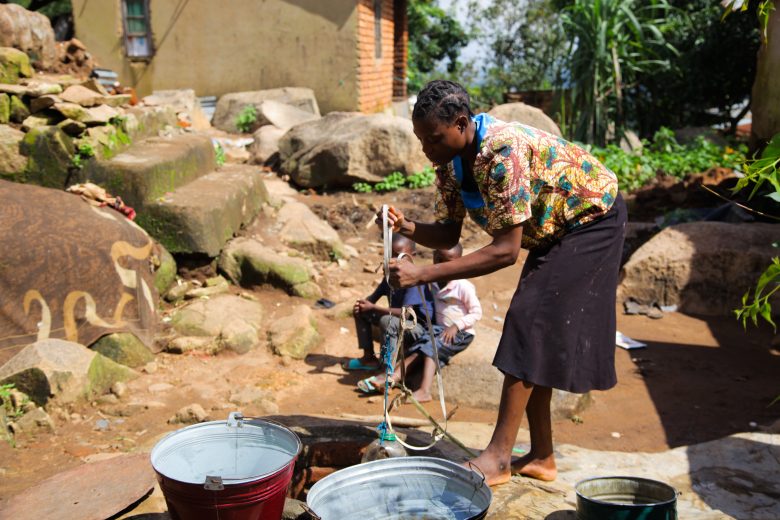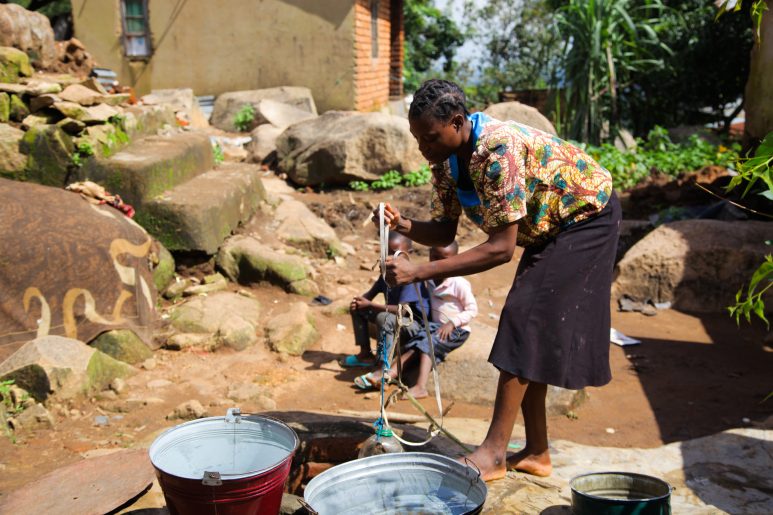By Raphael Mweninguwe
A number of studies conclude that women are most affected by climate change impacts, but are their voices being heard?

According to the UN, women are facing the brunt of the climate crisis.It is estimated that 80% of the people displaced as a result of climate change are women and yet they do not have much of a voice in the media.
A number of stories published in the media portray them as victims of climate change without necessarily giving them a voice. In the eyes of the media women and girls are seen as hopeless and are subjected to early marriages and sexual exploitation.
Dr. Robert Kafakoma, an expert in environmental and climate change issues based in Malawi’s capital Lilongwe, told Media Diversity Institute he agrees that climate change is not affecting men and women equally.
“Women are indeed seen as victims because most of the time they are the ones at home and carrying out most of the household chores,” he says, adding: “But they have a greater role to play in mitigation and developing resilience actions than men. Their depiction [in the media] does not necessarily mean victimisation, but trying to emphasise the gravity of the situation.”
Kafakoma, however, observes that some media experts believe their stories “will sell fast if women and children are depicted as victims”.
“Some organizations deliberately feature women without giving them a voice just as a marketing strategy to mobilize resources and support. Others are not necessarily portraying women as victims but as baits for marketing and resource generation,” says Kafakoma.
In its publication, Missing in Action: Experiences of women with climate journalism, Oxfam concludes that despite women journalists being among the most affected by climate change they themselves have no voice of their own on climate change reporting within newsrooms.
Oxfam observes that in recent years there has been an increase in environment and climate stories in newspapers, magazines and electronic media, but the “voice of female journalists is still largely missing. Further, news relating to climate change only reaches the headlines when disaster strikes”.
The portrayal of women as victims emanates from the fact that women are not given equal coverage in climate change news or a say within the communities, largely due to cultural norms.
“Female journalists believe that they can showcase a woman’s perspective with empathy. Male reporters may not fully understand the difficulties women face, or how disproportionately climate disasters have affected them. Women journalists are also more likely to have more and better access to women in climate change impacted areas,” observes Oxfam.
Charles Mkoka, a freelance environmental journalist based in Malawi, believes that gender diversity in the coverage of climate change is possible.
“Both men and women are affected in the same way when it comes to issues of climate change. We have witnessed that here in Malawi in the wake of Cyclone Freddy. Women, children, youth and the elderly were all affected equally by the cyclone. What is key is giving all of them a voice,” he says.
Luba Kassova, researcher and co-founder of AKAS, argues that the number of women given a voice in the media when it comes climate change is concerning. “On average, between 2017 and 2021, approximately just one in four (27%) of voices quoted in online climate change news belonged to women,” she writes.
In a press release published in March 2023 by European Broadcasting Union (EBU) Dr Alexandra Borchardt explains that climate change is a subject that needs hope, “yet news reporting often comes from a position of fear, warning and threat”. This approach, she says, neither explains the issue nor gets audiences on side saying the audiences just “turn off”.
She says because of the nature and complexity of climate change reporting, many newsrooms are failing to strike a balance between climate fact and climate activism and as a result, too often, “the media is accused of bias and this can make them wary of covering the story at all”.
Edina Gondwe, who is from the Karonga district in the northern part of Malawi, owns a fishing net and is a member of the Kaporo Fishing Cooperative. “In Karonga, for example, this year we have had both drought and floods. Most of the crops were destroyed and some were washed away by floods. At the meantime women are on the receiving end. They are the ones running around searching for food to feed their families,” she says.
She points out that despite the challenges women face from the climate crisis “they are so resilient to climate change”.
“Women bear the burden of climate change and they must be given a voice not only in the media but also in the public sphere. They need to be given opportunities as well, just like men,” says Gondwe.
Gondwe iexplains that if it were not for her determination and hard work she would not have been in the fishing business which is dominated by men. “Breaking into male dominated businesses like fishing requires courage and determination. Women must not be viewed as weak but they must be encouraged to do what they want to achieve in life. That can only happen if the media reports about them in a positive manner,” she says.
Fanny Maloya, a 25-year-old mother of two children who survived Cyclone Freddy that killed more than 500 people and displaced over 1000 Malawians in March 2023, says women need support to rebuild their lives after being hit by a climate change crisis.
“After the floods many women are not given the financial support they need to build their shattered homes. The majority are struggling and when you read newspapers or watch television you find that women are the ones mostly shown as victims or sufferers. Yes we are, but we need the opportunities to stand up again,” she says.
What next?
“Gender diversity in climate change reporting can only be achieved by ensuring the media treats all gender equally and give women a voice. The moment the media realises this notion in the coverage of climate change then the issues related to stereotypes will be fully addressed. They will then ensure balanced and factual coverage related to climate change in the process,” says Mkoka.
Kassova on the other hand believes that “disrupting the existing male bias in news by using more female voices as experts, protagonists and sources in climate change coverage” will be the way forward. “By offering more female perspectives, from both the global south and north, journalism can expand its relevance beyond its core audiences, and increase its impact as a result,” she says.
Kafakoma says the media needs to carry out a comparative analysis between men and women on climate change impacts and balance the stories. “It also needs to focus on the positive stories and case studies about women and climate change and also on what has worked for women rather than what has not worked for them and the suffering. More women’s voices are needed in climate change reporting,” he says.

